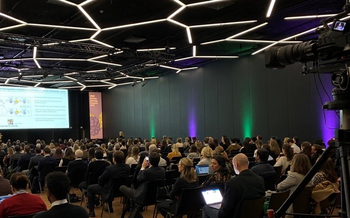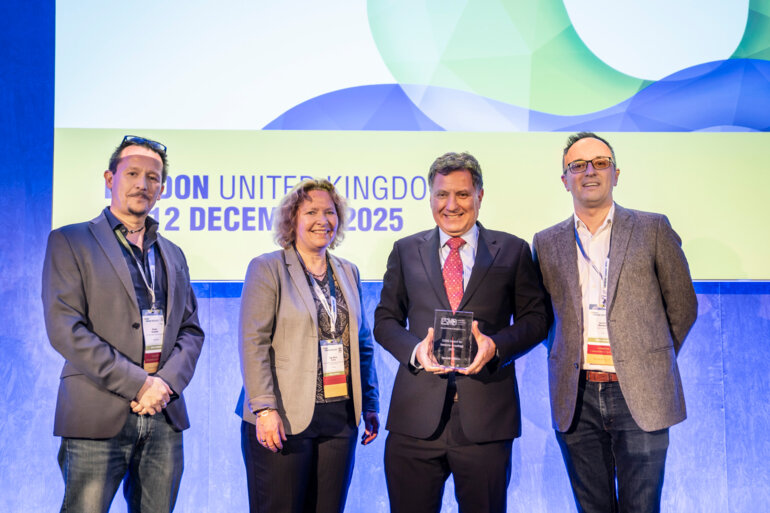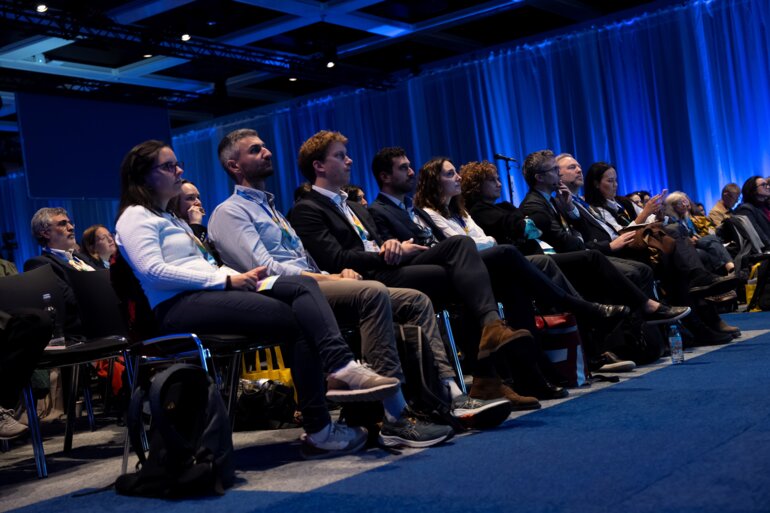According to the 2023 ESMO Immuno-Oncology Awardee, Steven A. Rosenberg, the keys to progress are identifying the optimal characteristics of antitumour effector lymphocytes, cancer antigen identification and strategies for overcoming resistance mechanisms to enhance immune-cell function
Prof. Steven A. Rosenberg, from the National Cancer Institute in Bethesda, USA, was presented with the ESMO Immuno-Oncology Award 2023 during the Opening Session of the ESMO Immuno-Oncology Congress 2023 (Geneva, 6–8 December) for his pioneering work on the first effective immunotherapies, which he extended into the development of adoptive cell transfer (ACT) immunotherapy and then improved upon with genetic modification. In recent research activity, Rosenberg is establishing new approaches for the application of immunotherapy to patients with a variety of common solid epithelial cancers by targeting the unique mutations present in the patient’s cancer.
What led you to explore immunotherapy as a treatment for cancer?
In my earliest dealings with cancer patients, during my surgical residency training, it became apparent that despite the best application of the three major treatment methods available at the time – surgery, radiotherapy, and chemotherapy – most cancer patients were not cured. You can often learn important information by listening to patients that you cannot learn in textbooks. While thinking about new alternative treatments, my interest was piqued by two unusual cases. When preparing to remove a man’s gall bladder, I discovered that 12 years previously, he had had a large invasive gastric cancer with lymph node involvement and liver metastases. Despite being treated with gastric surgery only, here he was, alive and disease free in the absence of any further treatment. It seemed likely to me that the patient’s immune system had recognised his metastatic cancer as foreign and destroyed it.
The second case was a patient who developed metastatic disease following transplantation of a donor kidney that unknowingly harboured a tumour. When immunosuppressant medication was stopped, the kidney was rejected and interestingly, the metastatic disease from the donor kidney cancer also disappeared. This indicated that if you could generate a sufficiently strong immune response, in this case to reject allogeneic donor tissue, cancer lesions can also be eliminated. Together, these cases put me on the road to trying to harness the immune system to treat cancer, and I have continued to explore this area for the last four decades.
What do you consider to be your greatest achievements so far in immunotherapy?
We have developed effective immunotherapies that can benefit and sometimes cure at least some cancer patients with metastatic disease refractory to standard treatments. My very first effective use of an experimental immunotherapy was in 1984 when I used interleukin-2 (IL-2) to treat a young woman with metastatic melanoma (N Engl J Med. 1985;313:1485–1492). Her tumour disappeared and she is still alive today. Further investigation using lymphocyte transfer revealed that the cells responsible for cancer rejection were lymphocytes that recognised the cancer as foreign (N Engl J Med. 1988;319:1676–1680). This work laid the foundations for my research in developing other effective immune treatments, including chimeric antigen receptor (CAR) T cells and tumour infiltrating lymphocytes (TILs).
What are the most important opportunities and challenges in immunotherapy today?
From the first patient treated with IL-2 in 1984, the first success with TIL transfer in 1988 and the first patient deriving efficacy from CAR-T cells in 2009, we are constantly seeing progress as our knowledge improves. The challenges are to continue to develop these treatments so that we can successfully treat future patients with the major solid epithelial cancers, that are responsible for 90% of cancer deaths, and which have tended to be resistant to current immunotherapy. We are only starting to derive some understanding of the basis of this resistance. Overcoming these resistance mechanisms may help to realise the benefits of immunotherapy across a wider range of cancers.
Major questions concerning the improvement of ACT cancer immunotherapy for patients with metastatic solid epithelial cancers revolve, in part, around identifying appropriate antigens to be targeted, the appropriate ‘fitness’ of transferred cells to enable them to proliferate in the patient following infusion, as well as improving the ability of the transferred cells to infiltrate and attack the growing cancer. Regarding antigen identification, we have demonstrated that about 80% of all patients with common epithelial cancers contain T cells that recognise the products of unique mutations in the autologous cancer and that targeting those mutations can sometimes lead to cancer regression (Mol Med. 2021;27:63). We have now seen impressive responses in selected patients with a variety of common cancers such as colon, breast, liver and cervical cancer, and current efforts are working to further refine this approach.








